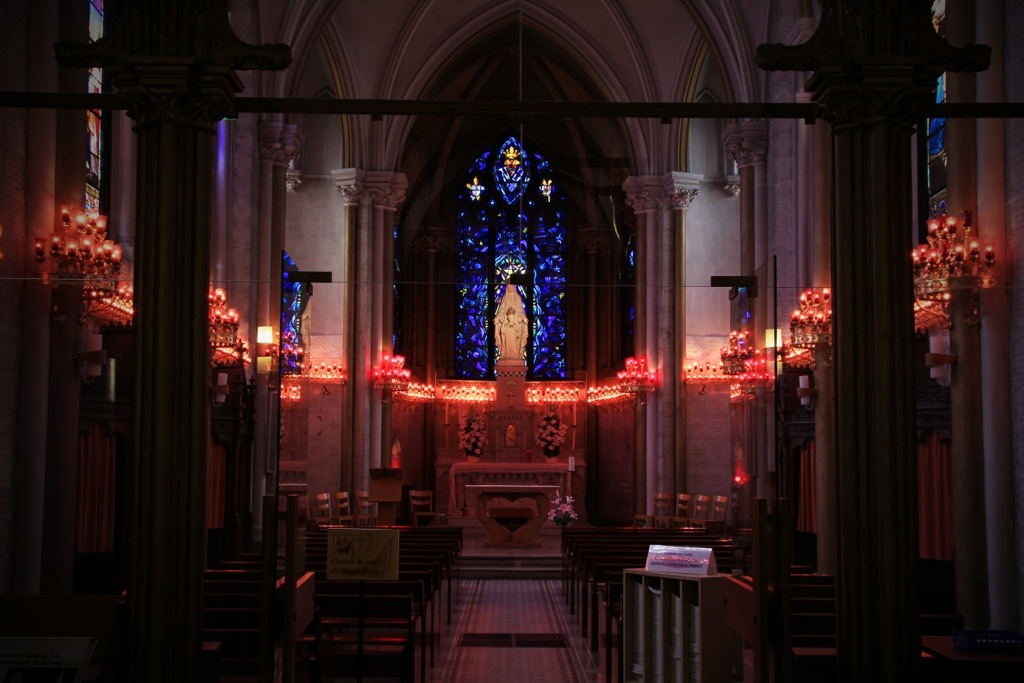Day four: into the heavy stuff!
If you bother to read further, it’s important to realise why we are here. This pilgrimage is to engage with the past, understand the present and become equipped to participate in the forming of the future of the mission of the Chevalier family — which is very Kwakmann language! Imam enjoying this part of the journey, because like most Catholics of my generation, and especially as a concert, the language of the 19th Century is very strange and struggles to connect with a modern faith. I think Hans has a great handle in this cultural change, building on the work of Bishop Cuskelly. This is challenging and interesting: a combination of social history, cultural studies and theology!

I think those who call Chevalier a man ahead of this time are probably right, but those that point to the limitations of his theological language are right too. There are condemnations that are frankly funny, like those of Protestantism — and given how limited his travels were, you really wonder if he had ever met a Protestant! Others are a little sad, in hindsight, and remind you of the contest of Church and State in post-revolutionary France: the enmity of Freemasons and socialists towards the church, especially the teaching orders, and the failure of the church to develop or to argue a social Gospel until it was far too late. But Chevalier’s charitable works were not unsophisticated, and he had a very good understanding of the damage poverty was causing the French people, so he offered hope to the hopeless, while the commune built a water supply; rather tragic that neither side recognized their common cause!
So here are some brief points of learning, although not the deep matters in my heart.
- Devotion to the Sacred Heart was for Chevalier not a matter of piety, but what we would call social action. The best way of changing, reforming and renewing society was through education and formation.
- As a result, he was committed to free education, even when the commune withdrew support in 1879 for the local Catholic schools. The parish provided funds for the nuns and brothers, while the msc community began a coeducational secondary school as well as the apostolic school.
- When the government abolished subsidies for seminaries, Chevalier arranged for a subscription from the clergy to continue the works in Bourges.
- Chevalier’s idea of mission — Christ’s mission, not ours, to heal the world.
- Fr. Johannes: our part if to trust in God’s love and convert out hearts. Trust makes us free, conversion of the heart changes us in to people modeling ourselves on Jesus.
- Chevalier was an educator, if not in the modern sense. He gave regular instruction, particularly during Advent and Lent. His focus on the needs of men is interesting! He promoted not alms giving but the practice of charity (“the human heart is the most practical means of doing good”).
- Leibniz: “One reforms and city when one reforms education.”
- Chevalier was a strong supporter of the education of women. “The education of girls is the foundation of the family” — an amazing statement, given the times and the place.
- One of my favourite statements of the tript: Love without knowledge is impossible. Knowledge without love is a disorder.
- The image of Chevalier as the ceaseless worker — we probably underestimate his intelligence, given how much he did with a limited education, but we should also not underestimate his insight into social conditions, nor his ability to manage the financial, political and pastoral dimensions of his developing mission.
- Cuskelly was integral to the process of recognising that the charism of Chevalier had the capacity to adapt and grown into a modern and vibrant spirituality.
I am particularly challenged by what we would now describe as Chevalier’s anthropology, his optimistic view of all humanity as loved by God and therefore of infinite worth.
A great session, with deep challenges and learnings.


